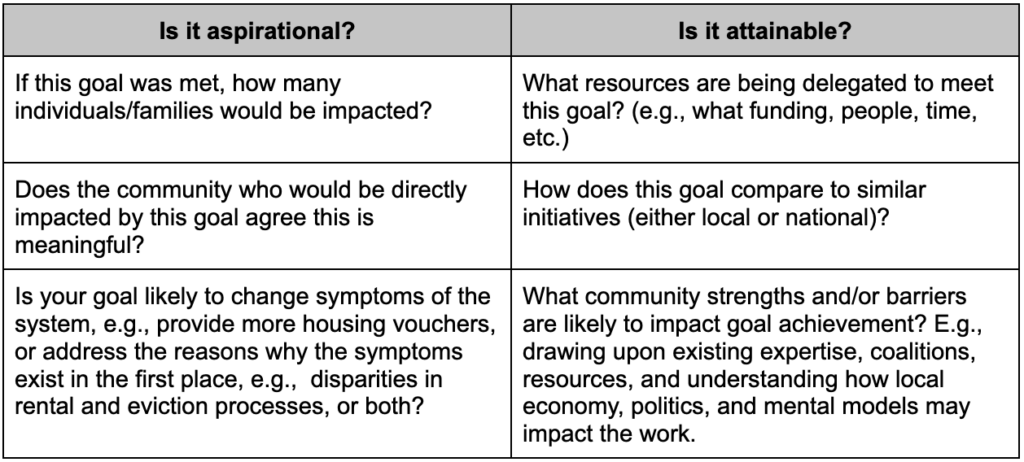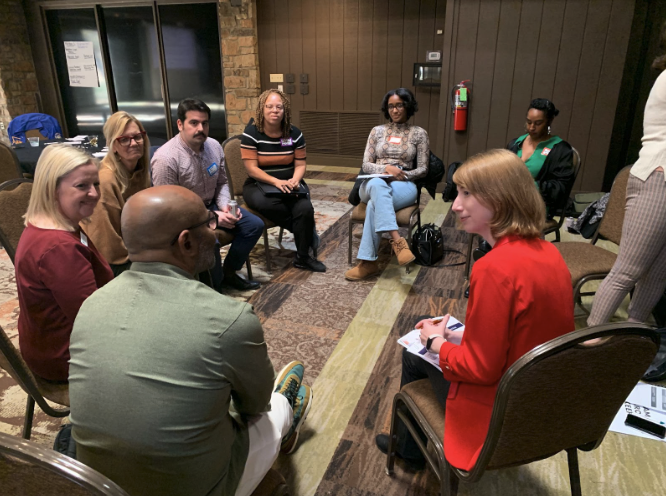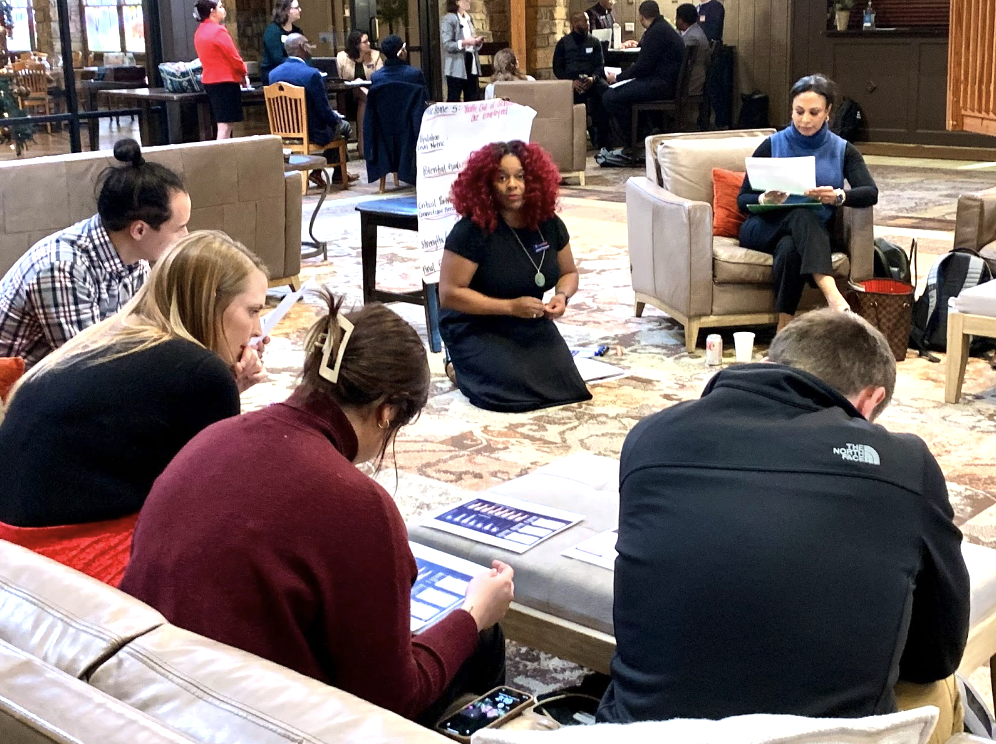ImpactTulsa serves to convene partners to help ensure that systems within the education sector meet the needs of all Tulsa families and students. Thus, a key component of the work is supporting the development of meaningful, clear and realistic goals. We intentionally use the SMARTIE framework as it guides teams to create goals that are Specific, Measurable, Aspirational/Attainable, Relevant, Timebound, Inclusive, and Equitable. While this framework has proven to be helpful across many of our initiatives, it continues to elevate challenges of how to create goals that are both Aspirational and Attainable at the same time.
Creating goals that are both aspirational and attainable can feel like you are facing concepts that are at odds with one another … but that is the point. The balance between those two things is vital to successfully making and meeting goals that are going to create meaningful change in the community. Simply put, if the goal is too easy, it’s probably not meaningful. If the goal is too hard, it’s likely not going to be achieved which leaves the community with little to no benefit.
Here are some guiding questions we’ve found to be helpful as teams work to find the delicate balance between aspirational and attainable goal setting:

Tips for effective goal-setting
At ImpactTulsa, we use collaborative improvement (i.e., pulling in cross-sector partners and community members to work together to address problems, and to guide community change that ensures all children in Tulsa receive every opportunity to succeed. Some aspects of this work that we’ve found most helpful related to effective goal setting include the following:
 In an ideal situation, it’s best to start with doing a root cause analysis (i.e. understand what factors are contributing to the problem) before setting a goal. This can create a more factual understanding of what all needs to be addressed to make change. Further, this creates an opportunity to disaggregate data to understand differential impact on groups of people. Having that knowledge allows teams to strategize ways to ensure all ranges of needs are understood as they work to create a goal.
In an ideal situation, it’s best to start with doing a root cause analysis (i.e. understand what factors are contributing to the problem) before setting a goal. This can create a more factual understanding of what all needs to be addressed to make change. Further, this creates an opportunity to disaggregate data to understand differential impact on groups of people. Having that knowledge allows teams to strategize ways to ensure all ranges of needs are understood as they work to create a goal.- Utilize collective wisdom by bringing together a wide range of committed stakeholders to help do the root cause analysis, create a goal and work to implement strategies. By having a wide range of stakeholders, that helps ensure you can be working to solve the problem from multiple angles (e.g., changing policies and practices & shifting resources and power to those most impacted). Tackling a problem through multiple angles, not only maximizes the opportunity for progress, but also maximizes the opportunity for meaningful progress.
- Built in time to pilot ideas on a small scale. By testing ideas before fully enacting them, you have the opportunity to learn if and how they bring about change. That learning can then help to inform realistic ideas and to adjust goals accordingly.Overall, creating a goal that is both aspirational and attainable can be challenging and often creates debate within teams. However, it truly is a driving factor for setting up teams for success. Unattainable goals create confusion, burnout, and distraction from meaningful change. Goals that are not aspirational cheat our communities out of the level of change that they need and deserve.
Call to Action
If we (as a community) are truly focused on creating goals that benefit students and families in our community, it’s important to invest time and attention into developing goals that are both aspirational and attainable. Let’s support one another in doing so by collaborating with partners in this space to help share insights, perspectives and resources that allow all of us to be accountable for creating goals that are aspirational and attainable.
_______________________________________
About the Author:
Lauren King, M.A.
Director of Learning & Activation of ImpactTulsa
Lauren King joined the ImpactTulsa team in February 2020 after moving from her home state of Illinois. She has over 12 years of experience working in the Chicago nonprofit sector as a program evaluator and community organizer focused on social services and education. Her educational background is in criminal justice and psychology. She earned her MA in Forensic Psychology at The Chicago School of Professional Psychology and her BA from Bradley University. At ImpactTulsa, Lauren serves as a coach, trainer, and facilitator to support partners in building capacity to disrupt inequities through systemic change.
Since moving to Tulsa, Lauren has been eager to get involved in the community beyond her day job. She was grateful to be on a planning team that received a grant from the TYPROS Foundation to launch “We Are All Connected” in 2021 and to receive training from the City of Tulsa that equips her to facilitate community discussions across multiple sectors. Lauren currently serves on the board of the Oklahoma Access to Justice Foundation. She is also a doctoral student in the University of Oklahoma-Tulsa Organizational and Community Leadership program.

